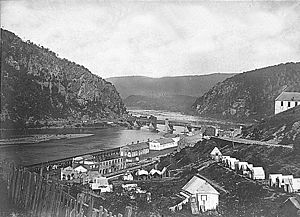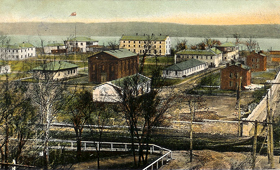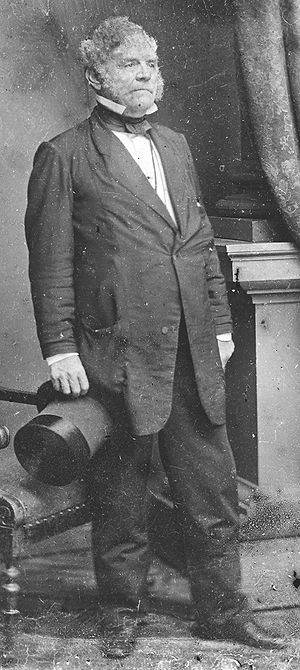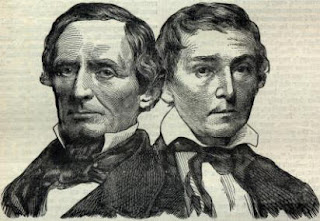 Image via Wikipedia Image via Wikipedia |
| USS Cairo |
- Confederate troops burn Hampton, Virginia, where Fortress Monroe is located with US General Benjamin Butler in command. General John Bankhead Magruder indicates that Butler’s quartering of runaway slaves and advocacy that they be made contraband is part of the reason for burning the town./1861
- In Washington, the US War Department, trying to further improve operations, contracts with J.B. Eads of St. Louis to build seven shallow-draft ironclad river gunboats. These gunboats, the USS Cairo, Carondolet, Cincinnati, Louisville, Mound City, Pittsburg, and St. Louis, will become the backbone of Grant’s Union naval force in the Western Theater beginning in February 1862./1861
- Near Ship Island, Mississippi, the USS Massachusetts under Commander M. Smith captures the blockade runner sloop Charles Henry./1861























